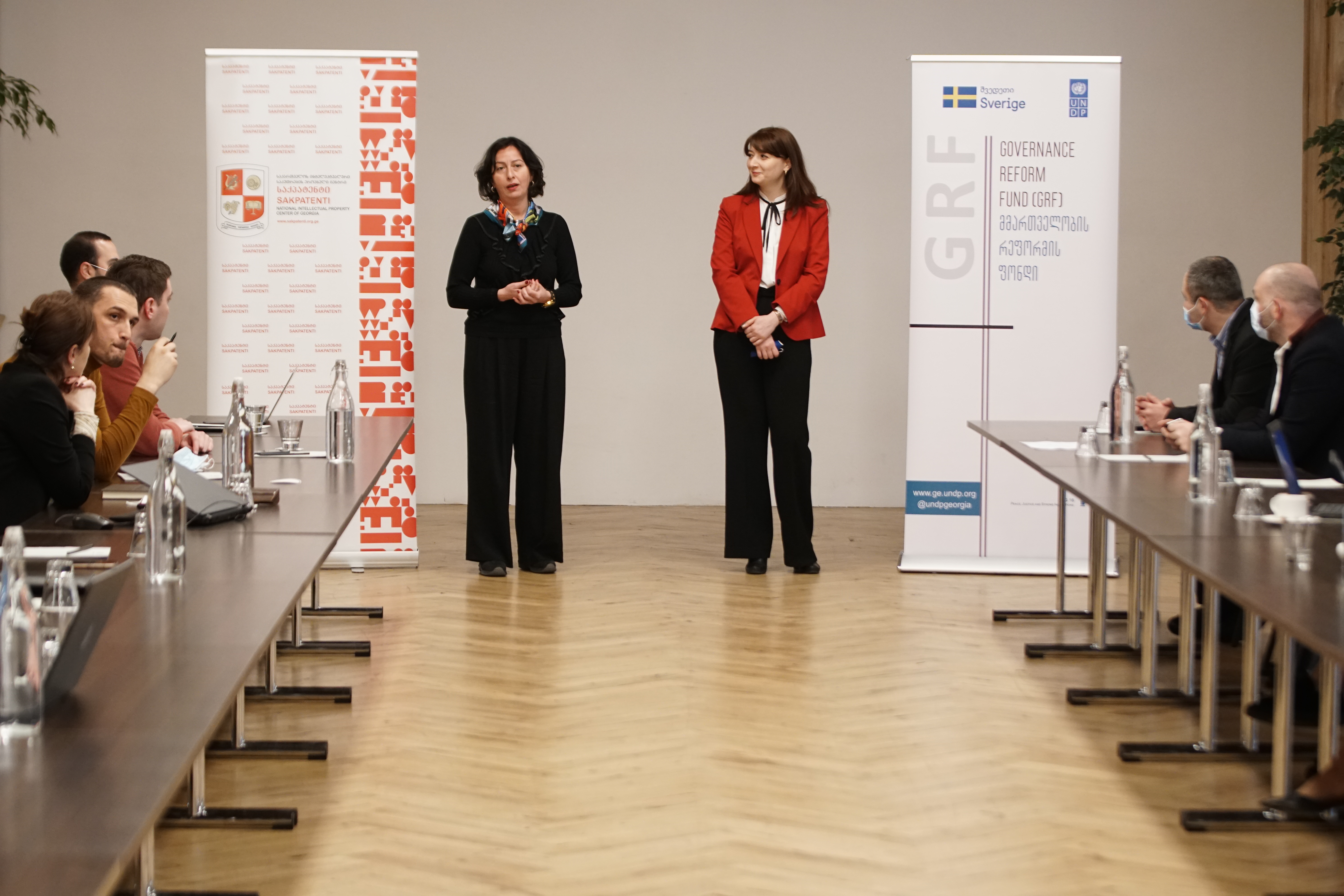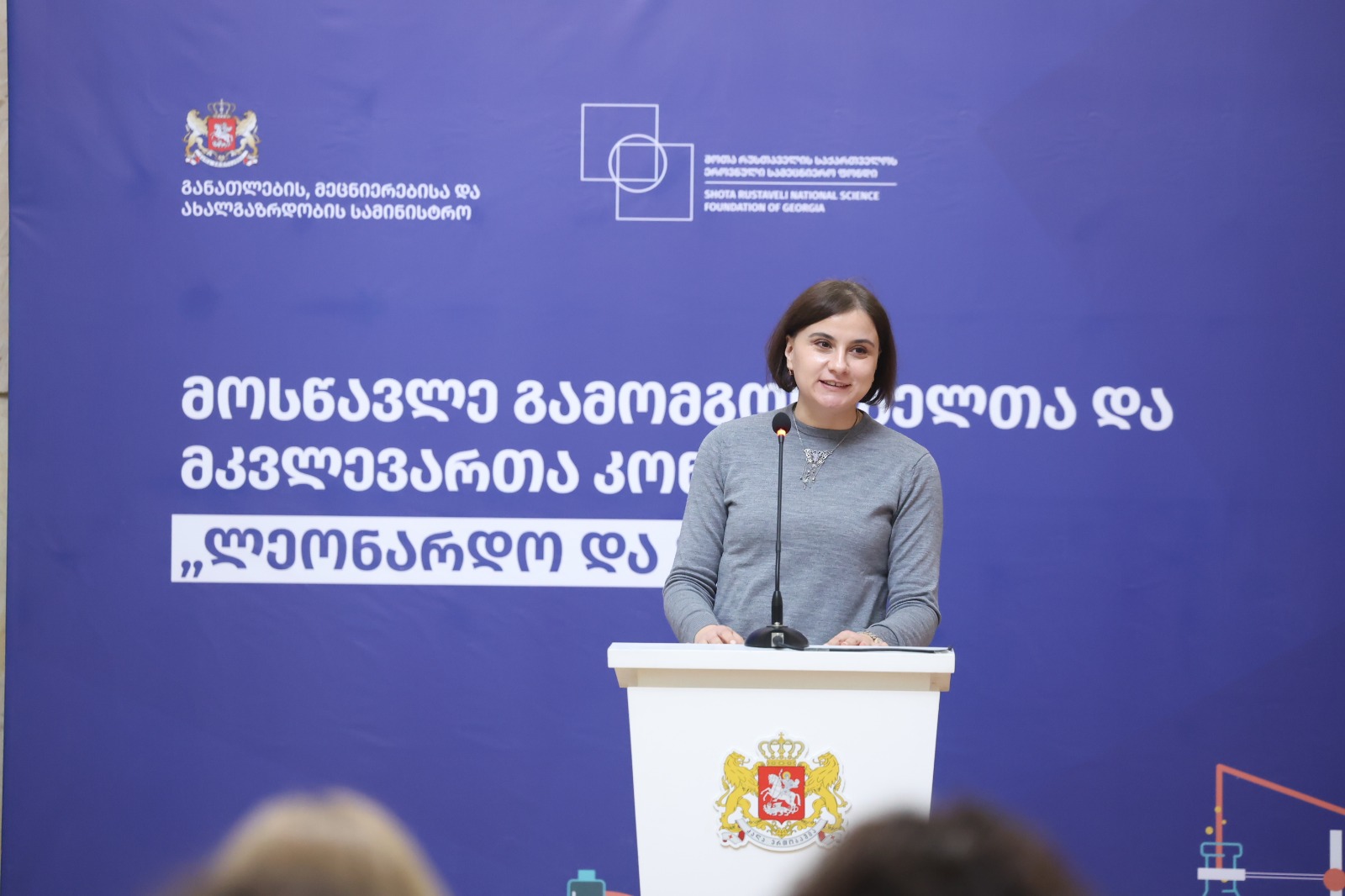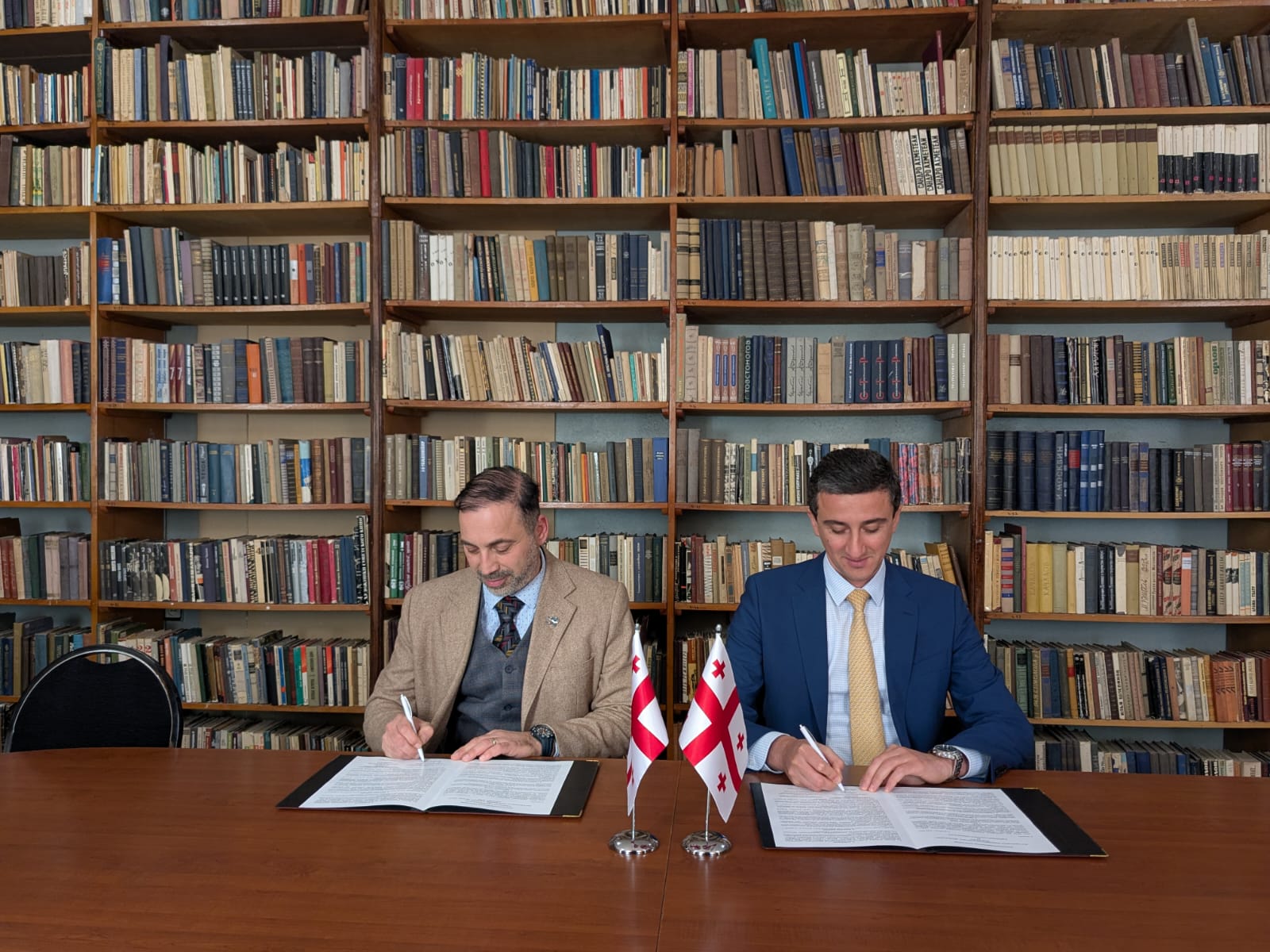Sakpatenti is Working on the Strategy Document Which will be the First in the History of the Existence of the Center
April 28, 2021
The National Intellectual Property Centre of Georgia Sakpatenti in a few months will present to the public the four-year institutional level development strategy. The work on the document is being implemented with the support of the United Nations Development Programme Governance Reform Fund (UNDP-GRF) and its structure will be based on the “Rule for Elaboration, Monitoring and Evaluation of Policy Documents” approved by Government’s Resolution.
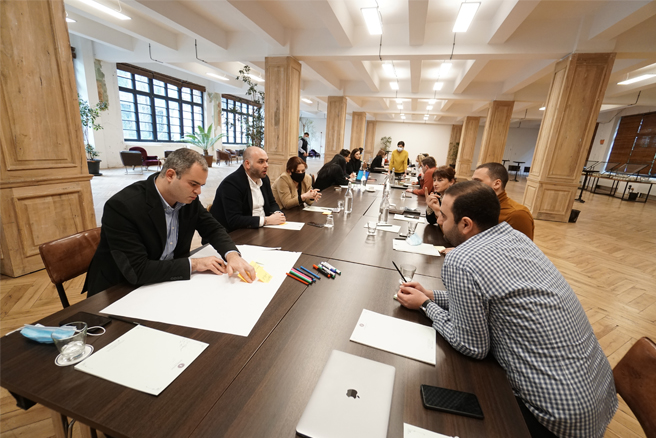
The process of work on the document is led by consultants of business consulting company GEC I Systemic Business Consulting, who are holding meetings with managers of all levels of Sakpatenti as well as relevant stakeholders of the Center. So far three workshops have been held with the open discussion format. The challenges on the agenda of the Center and opportunities were discussed with the representatives of Sakpatenti management. As a result of analysis of the information received during these meetings the basic directions of development of the Center must be defined.
The four-year development strategy will be constructed on the evidence based policy drafting principle, which in accordance with the challenges and necessities of the Center will fully define the main directions of its development. The main objective of the development strategy is organizational strengthening of Sakpatenti and ensuring the efficiency of its functioning through elaboration of the existing governance processes and development of new management mechanisms and services.
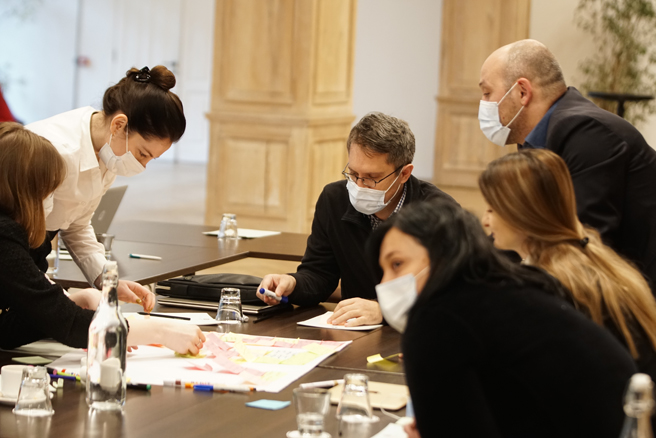
The Governance Reform Fund (GRF), in cooperation with the United Nations Development Programme (UNDP) and the Government of Sweden, is assisting public institutions of Georgia in capacity building and in carrying out democratic reforms. The aim of the project is to establish strong public governance, which will ensure strengthening the rule of law, increasing the democratic accountability, achieving the sustainable development goals and facilitation of approximation with the European Union. Through consultations and technical assistance, GRF helps strengthening capacity building of civil servants, development of institutional capacity, elaborating public policy documents and introducing systemic changes.

